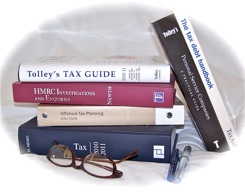
ctp


Capital Gains Tax (CGT) is a tax on the profit (known as a gain) you make when you sell or otherwise dispose of an asset.
Only the gain, not the proceeds is taxed.
For CGT purposes you are considered to have disposed of an asset when you cease to own it. This includes if you:
-
✓sell it
-
✓make a gift of it
-
✓transfer it to someone else
-
✓exchange it for something else
-
✓receive compensation for it
Not every disposal attracts CGT. For example -
-
✓when somebody dies and their assets pass to their personal representatives or
-
✓where shares are disposed of in exchange for other shares (and HMRC approval is obtained).
EXAMPLE : If you bought Apple Inc. stock in May 2012 for £8,500 and sold the stock in September 2020 for £13,200 your basic gain would be £4,700.
If you have capital gains, you may have to fill in the capital gains pages. You do not have to fill them in if the total disposal proceeds in the 2019/20 tax year were less than £48,000 and your chargeable gains (before losses) were below £12,000.
Otherwise you must fill in the capital gains pages. You must also fill them in if you want to claim an allowable loss.
The the rate of CGT is either 10%, 18%, 20% or 28%, depending on your total income and the type of gains in the year.
You must pay CGT on all your chargeable gains if you are tax resident in the UK.
If you leave the UK you are still potentially liable for CGT for up to 5 years on assets which were held at the time of leaving the UK. After April 2015 expats are chargeable on gains arising from a UK residential property, regardless of how long they have been non-resident.
In certain circumstances you may not have to pay CGT on gains arising on assets abroad if you are not domiciled in the UK.
From April 2020 all capital gains arising on the sale of UK residential property must be disclosed within 30 days of the sale date and any CGT must be paid by the same date. Details of how to report and pay the CGT are at https://www.gov.uk/capital-gains-tax/report-and-pay-capital-gains-tax
Most assets, tangible or otherwise, which are capital in nature are likely to give rise to a capital gain or loss on disposal. Some common examples are -
Shares
Land and Buildings
Business assets, such as goodwill
The following are the most common assets which are exempt from CGT -
-
•private cars
-
•personal effects worth £6,000 or less when you dispose of them (these are called chattels)
-
•Savings certificates, Premium Bonds and British Savings Bonds
-
•gains made within a Personal Equity Plan (PEP)
-
•bonuses from tax exempt special savings accounts (TESSAs)
-
•UK government stocks (gilts)
-
•personal injury compensation
-
•foreign currency for you or your family's personal use
-
•life assurance policies and deferred annuity contracts, unless purchased from a third party.
-
•betting, lottery or pools winnings
-
•SAYE terminal bonuses
-
•compensation for mis-sold pensions taken out as result of disadvantageous advice given between 29 April 1988 and 30 June 1994
-
•any asset whose disposal is chargeable to income tax (such as some share options)
Transfers between husband and wife can be a good CGT planning tool for married couples.
If you transfer an asset to your spouse and you are living together, you will not be taxed. Instead any gain or loss is deferred until the asset is disposed of by your spouse. Your spouse may then pay tax on any gain made during the whole time that both of you have owned the asset.
So, for example, a person who was about to dispose of shares for £38,000 and which would produce a gain of £15,000 would normally pay CGT on gains of £3,000 (after the exemption of £12,000) in 2019/20.
However, if that person transferred half of the shares to their spouse before disposal - so that they each had proceeds of £19,000 and gains of £7,500 - there would be no CGT to pay as each would have gains below their exempt limit.
Normally, capital losses may only be set against capital gains. Losses incurred in one year may be carried forward indefinitely until they are used.
However, if you have losses from the disposal of certain unlisted shares, you may be able to make a claim to set those losses against your income, rather than your gains.
The basic idea is that the original cost of an asset is deducted from the sale proceeds (net of the costs of sale) to give the gain. Sometimes market value has to be substituted for the original cost.
There are extensive help sheets on the HMRC website.
Capital Gains Tax
What is capital gains tax?
Do I need to disclose a capital gain on my tax return?
Who pays CGT?
What assets attract CGT?
What happens if I transfer an asset to my spouse?
Can I set my CGT losses against my income?
How do I calculate my capital gains?






"How many millionaires do you know who have become wealthy by investing in savings accounts? I rest my case."
Robert G. Allen

More information.......



Do you need help with filing a tax return?
We can complete and file a return for you with all tax calculations taken care of.
We can agree a fixed fee in advance.
Contact us for details



ctp europe ltd © 2010-2021

